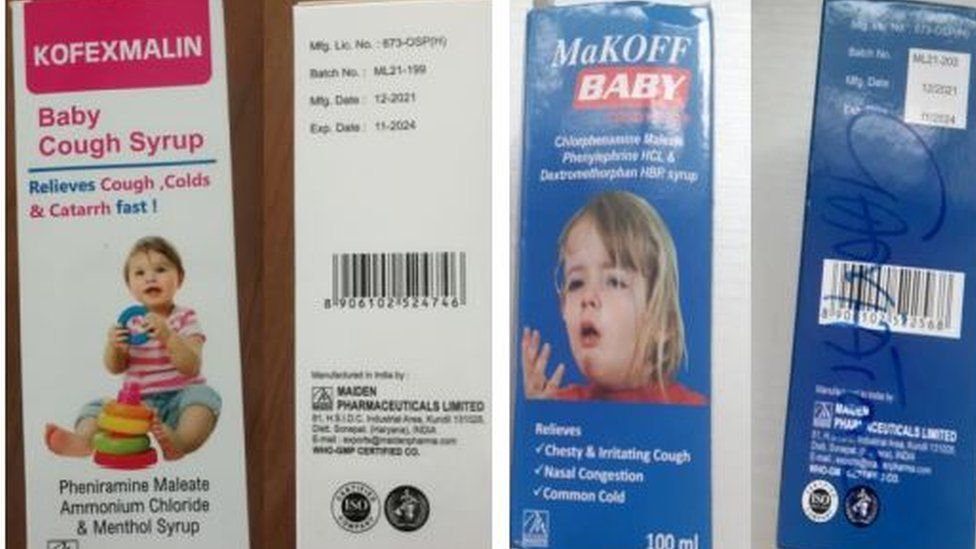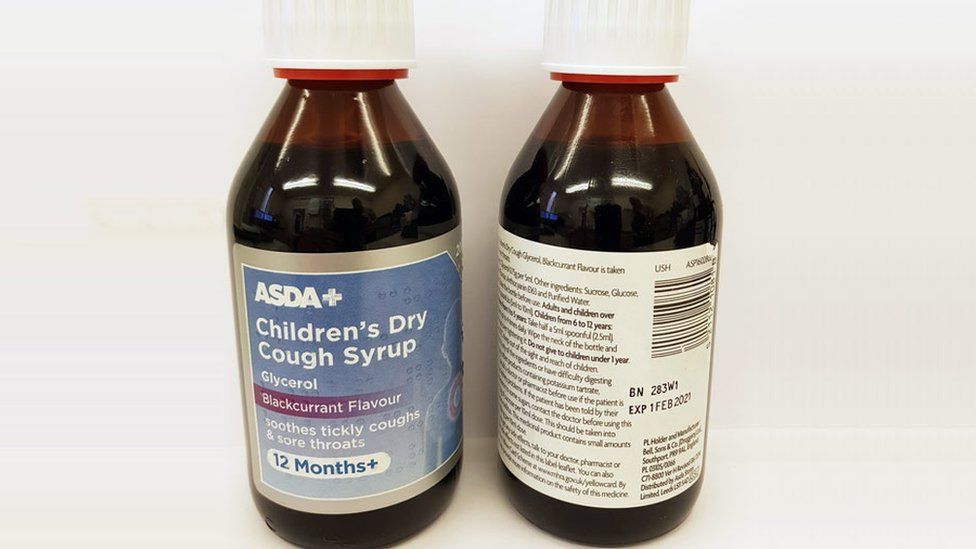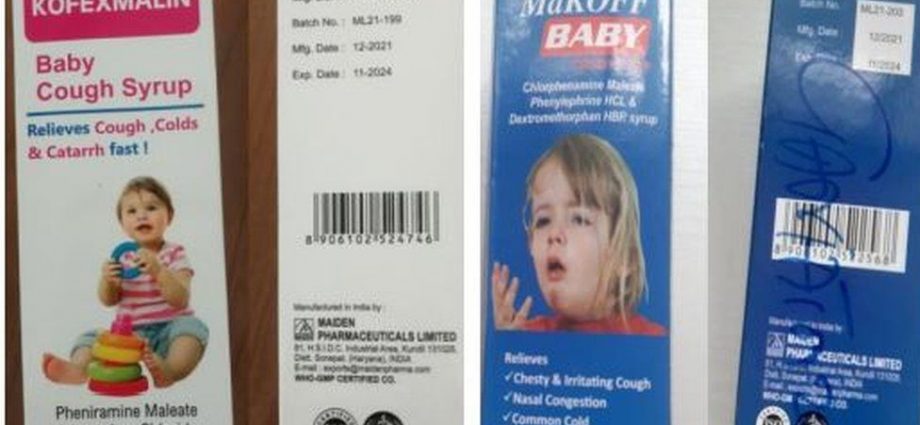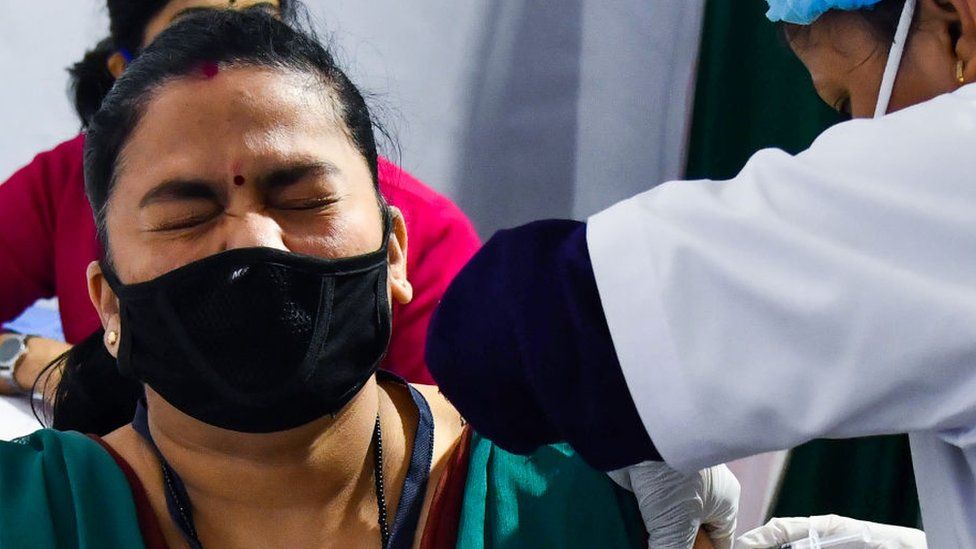
The World Health Organization has issued a medical product alert on four cough syrups made in India, linking them with 66 child deaths in Gambia.
This came after an investigation into the deaths of children from kidney injuries in the West African country.
The health body is “conducting further investigation” with the firm – Maiden Pharmaceuticals – and Indian authorities.
It has also advised regulators to stop sale of the syrups.
India’s health ministry and drugs regulator are yet to comment on the allegations.
The BBC has emailed Maiden Pharmaceuticals for comment.
The Indian Express newspaper reported on Thursday, citing sources, that the Indian drug regulator had launched an investigation after it was informed of the issue on 29 September.
The WHO findings, announced by Director-General Tedros Adhanom Ghebreyesus on Wednesday, came after samples of each of the four cough syrups were tested.
The health body said that laboratory analysis has confirmed that the syrups contain “unacceptable amounts” of diethylene glycol and ethylene glycol, which are toxic to humans and can prove fatal when consumed.
The WHO said that so far, the products have been identified in Gambia, but that they may have been distributed to other countries through informal markets.
“All batches of these products should be considered unsafe until they can be analysed by the relevant National Regulatory Authorities,” it added.
India produces a third of the world’s medicines, mostly in the form of generic drugs.
Home to some of the fastest growing pharmaceutical companies, the country is known as the “world’s pharmacy” and meets much of the medical needs of African nations.
Maiden Pharmaceuticals, which is based in the northern state of Haryana, exports its products to countries in Asia, Africa and Latin America, according to Reuters.
Medical officers in Gambia first raised the alarm in July after dozens of children were diagnosed with serious kidney problems.
Gambia’s director of health services, Mustapha Bittaye, told Reuters that the number of deaths has gone down in recent weeks and that the country had banned the sale of the products.
“However, until recently, some of the syrups were still being sold in private clinics and in hospitals,” he was quoted as saying.

Read more India stories from the BBC:

-
-
20 June 2018

-


